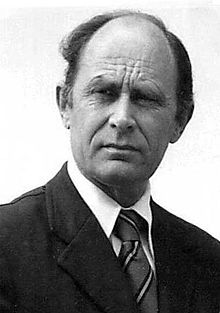 Before launching this site in October 2018, I put a tagline under my name in the masthead. At first, it referred rather boringly to the half-century of retrospective I wanted to set down here. I eventually changed it to “Navigating this dispensation’s last days” and cited a couple of Biblical verses to justify the reference to “dispensation.”
Before launching this site in October 2018, I put a tagline under my name in the masthead. At first, it referred rather boringly to the half-century of retrospective I wanted to set down here. I eventually changed it to “Navigating this dispensation’s last days” and cited a couple of Biblical verses to justify the reference to “dispensation.”
Still boring, perhaps, but at least it suggested the unity of my interests.
My understanding of the current historical phase—the dispensation of the grace of God (Ephesians 3:2)—informs how I evaluate events, arguments, apologetics, liberty and threats thereto, and everything else, and therefore what I write on this blog. Every visitor here should know that. We’re living in this dispensation’s last days with its syndrome of 21 wicked symptoms (2 Timothy 3).
That unity hasn’t always been clear. The hundred-plus posts published so far have struck even me as an aggregate, not an organic whole, a “many” without an obvious “one.” Mixed messaging may have resulted.


For example, if an essay on Brand Blanshard or C. E. M. Joad drew you in, you may have been put off by posts on the metapologetics of Greg Bahnsen (which he learned from Cornelius Van Til).



Or perhaps you appreciated reading about the libertarian Murray Rothbard, but couldn’t care less about Stalinist Herbert Aptheker or Trotskyist George Novack.
(Or vice versa.)
Then there’s my goal, puzzling to some who know me, of producing a life-and-thought study of Otis Q. Sellers, the independent dispensationalist you’ve probably never heard of.

The manuscript is growing, but as I’m challenged to summarize his thought (already clearly expressed, but spread out over many publications and recordings), I’ll be blogging much of the rest of the book into existence. Continue reading ““Helping you navigate this dispensation’s last days”: What do I mean?”



 William Schultz commented on Blanshard’s assessment:
William Schultz commented on Blanshard’s assessment:

 The author achieves this in about the same number of pages (at least, sans apparatus) but, more importantly, he does so with equal readability, all the more remarkable since English is not his mother tongue.
The author achieves this in about the same number of pages (at least, sans apparatus) but, more importantly, he does so with equal readability, all the more remarkable since English is not his mother tongue.

 When I chanced upon Sutton’s trilogy at a public library in the early ’70s,
When I chanced upon Sutton’s trilogy at a public library in the early ’70s, 